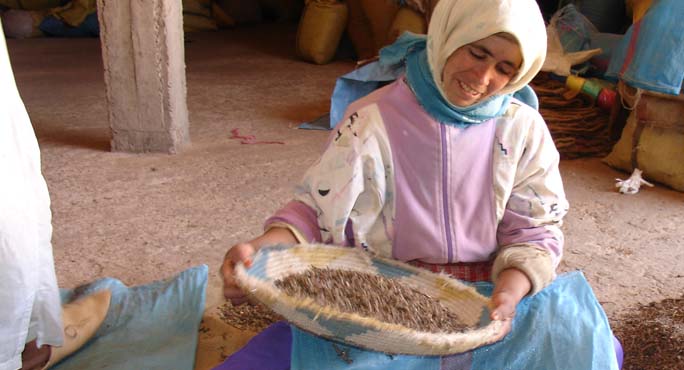Sifting Herbs in Morocco. Photo by: Chris Kilham
If the end user of a medicinal plant product gets relief from symptoms, but the environment is harmed in the trade of that plant and the people who work in the field live in poverty, there is no holistic healing taking place. Real healing means that the whole system thrives. Ethical trade means engaging in commerce in ways that improve the lives of people in the field. It involves increased wages and sharing in the benefits of success.
Half of the people in the world live on less than $2 dollars per day. Over one billion people live on less than $1 dollar per day. Many of these people work in agriculture, helping to grow and provide the foods, spices and medicines we use to sustain ourselves. It is completely unconscionable to profit from agricultural trade, including medicinal plants, while the people who do the hardest work in the fields live in poverty.
Every time you buy an herb or spice, somebody somewhere sat and sifted an cleaned that spice by hand. Whether you purchase a neat little bottle of black peppercorns, or a bag of cinnamon, or some mint tea, somebody sat and cleaned it by hand. The amount of work that goes into providing clean herbs and spices is immense.
Helping to improve the wages of people who work on the field side of medicinal plants is a process. Often you can increase the market price of a certain plant by multiples, and barely affect the price of finished products at all. But this can mean that a family will eat better, will be able to afford clothing and other necessities. At Medicine Hunter, we help to raise wages for people in the field. We promote and help to implement benefit-sharing projects, from improving schools to enhancing health care for poor communities. There are literally thousands of things you can do to make a positive difference. Over time we will share more on this topic.


